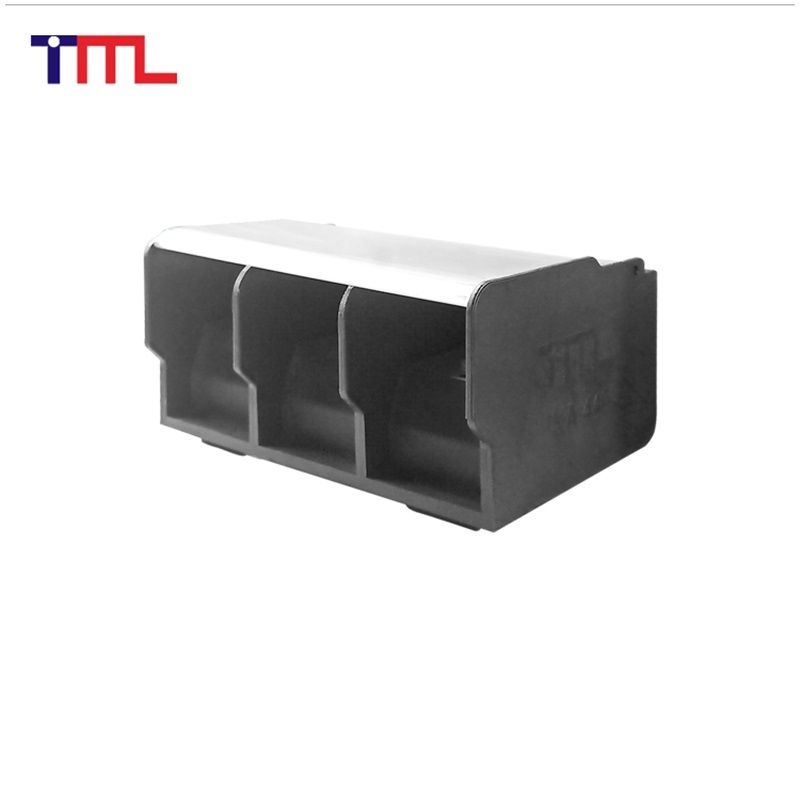Moving storage to the cloud will bring some enticing benefits to the business, but only if you need to avoid common cloud storage issues. Here are some of the key issues you need to be aware of before moving your valuable data to cloud storage. Cloud Storage Issue 1: No Choice for the Right Cloud Storage Provider The old saying goes, “No one is fired because of choosing IBM.†When it comes to cloud storage providers, companies typically choose one of the two largest cloud computing providers in the world, AWS or Microsoft Azure. Although the two companies may be the best choice for many companies, they may not be. And it may make more sense for companies to work with small storage providers who can provide more services and help, depending on their situation. Services with other cloud storage providers need to understand the history of their downtime to understand the reliability of their past business operations and therefore demonstrate their future reliability. There is also data accessibility, including their bandwidth between data centers, and the bandwidth between the data center and the Internet. Also check the storage provider's pricing structure, which includes fixed fees and bandwidth charges to move data in and out. A common cloud storage problem facing businesses is to ignore whether their needs are expanding and shrinking. For example, does the company commit to storing a certain amount of storage space each month, or only for content that is used daily, weekly, or monthly? Understand the vertical industry in which the company is located. Choosing a storage provider that understands your industry and possible data requirements may make your business easier, and if you don't choose a professional vendor, you'll face a cloud storage trap that might put the business in The competition is at a disadvantage. This is because service providers who understand the industry in which they are located can better adapt to their industry's usage patterns and performance requirements and demonstrate compliance with relevant industry regulations. Cloud Storage Issue 2: Ignore Connections An enterprise's data center may have the most advanced network with a connection speed of 100Gbps or 10Gbps, while other organizations may have only 10Gbps, 1Gbps or even 100Mbps. But when it comes to connecting to the Internet, the bandwidth of the enterprise may be much slower, possibly as low as 10Mbps, and it may be asymmetric (which means that uploading data to a cloud storage provider is slower than downloading it from it) many). Cloud storage gateways and other WAN-optimized devices can help alleviate this problem, but if connectivity to cloud storage providers is insufficient, then enterprises moving to cloud storage are unlikely to achieve high enough storage performance to achieve many potential benefits. Cloud Storage Issue 3: No Right to Service Level Agreement (SLA) Most cloud storage providers offer companies a service level agreement (SLA) that outlines their obligations to the business and what services they provide when problems arise, which companies typically accept. According to research firm IDC, about 80% of cloud computing customers accept the sample service level agreement (SLA) they provide, but 20% of companies negotiate changes to ensure they meet their needs. For example, a cloud storage vendor may provide a "four 9" (ie, 99.99%) uptime guarantee for a business, resulting in a business downtime of 50 minutes per year. But this may be calculated once a year, maybe its service will be down for 50 minutes on the first day of signing the contract, so the company must wait a year to determine if the service level agreement (SLA) has been violated, and the company is therefore entitled to Any compensation. During this time, the company will have to bear any losses incurred. To avoid this cloud storage problem, companies need to be prepared for 50 minutes of downtime per year, but if the business needs better operations, it should be no more than 15 minutes per month. Cloud Storage Issue 4: If a provider violates a service level agreement (SLA), the company may overestimate the compensation It is tempting for companies to consider service level agreements (SLAs) as an insurance strategy: as long as the terms of the service level agreement (SLA) are met, the business of the business can continue to function normally, if they do not, The enterprise's cloud storage provider will provide compensation for violations. But this is not the case, this is a common cloud storage problem. In most cases, violations are in the form of service credits (that is, providing a few months of free services). In the event of a serious violation (such as all data loss), the maximum amount a company wants to receive may be the value of the contract. Times or four times. In many cases, these compensation costs are far less expensive than the business cost of losing large amounts of data. Of course, companies may negotiate higher compensation with cloud storage providers, but companies are likely to pay more for storage. In most cases, companies may be less likely to purchase insurance from a third party. Cloud Storage Issue 5: Failure to effectively monitor service level agreements (SLAs) Working with a cloud storage provider adds another layer of complexity between the business users who use enterprise data and the data itself. The IT department that monitors the service level agreement (SLA) is in the middle. When it comes to data access issues, a common cloud storage trap is that users or business units may bypass the IT department and go directly to the cloud storage provider's help desk to solve the problem. If this happens, the business cannot rely on the provider to document every problem that occurs, which means that accurate monitoring of service level agreements (SLAs) is virtually impossible. Avoiding this cloud storage flaw is to educate users, and the company's IT help platform should be their primary point of contact in all situations. Cloud Storage Issue 6: Failure to clearly understand how to get data or move it to another provider Cloud storage providers may be able to provide themselves with the ability to deliver data faster, perhaps through a free data portal from a physical storage medium in the data center, such as a hard drive, or through a network connection. However, if the company decides that it no longer needs to use the provider's services, then unexpectedly difficult or costly situations can often occur. In order to avoid this cloud storage trap, it is important to get a satisfactory answer to the following questions: How will the enterprise's data be provided - through a network connection, or can it be stored on a physical storage medium for collection? How long can I use – will the company wait a few days or weeks? How much bandwidth is available if you plan to download data? This is important because even with a 1Gbps link, it takes nearly two weeks to get 150TB of data from a cloud storage provider to the enterprise's data center. If the enterprise returns data over the network, what bandwidth costs will be involved and what is the cost of placing it on physical media? How long does it take to delete a copy of the data and the backup, and does the company want to get an official confirmation that all copies have been deleted? In what format is the data provided - will it be available in a .csv file or some other more closed format? Cloud Storage Issue 7: Assume that using a cloud storage provider can eliminate all security responsibilities of the enterprise The goal of cloud storage providers is to become an industry expert, including keeping their cloud platforms and their data secure. However, if there is a data security breach, the company's customers will demand compensation, and the company will suffer economic, reputation and business losses. This means that in order to avoid this cloud storage problem, companies need to do due diligence and ensure that cloud storage providers provide the security they need. To do this, companies need to know as much as possible about the security measures that have been implemented and what criteria and regulations are certified (eg HIPPA, PCI-DSS, SSAE 16). Cloud Storage Issue 8: Maintaining a fixed cost without considering other factors For many companies, one of the key drivers for moving to cloud computing is to reduce costs, or at least switch from a single large capital expenditure to a small, normal recurring operating expense. While this may be beneficial from a business perspective, it's important to keep this in mind, and to change the payment method, but also to make fundamental changes. In other words, cloud storage is different from existing data center storage, and new security, compliance, and accessibility challenges also need to consider new performance characteristics. In the end, some of the applications that businesses run in the data center are not performance sensitive and are well suited for use with cloud storage. This is not the case for other applications. This means that if the enterprise decides to use cloud storage for later applications, the application itself may have to run in the cloud, close to cloud storage. This in turn means that moving data to cloud storage may require a greater degree of consideration for the feasibility of migrating some or all of the applications to the cloud.
Integrity and caring is the purpose of our service. Affordable, cost-effective, carefully selected materials, quality Seiko. On-demand customization, fast delivery, considerate service, honest cooperation. We have used oil in many physical factories, the manufacturers directly connect with customers, and have many years of industry experience. More high-quality materials to create high-quality products.
We specialize in the production of terminal blocks, there are different types, PCB Terminal Block and Din Rail Terminal Block. You can go to our website to browse. More Spring Terminal is on sale, which can be customized according to your needs. If you are interested, you can consult us. If you need some Terminal Pins or other Terminal Block Accessories, you can also consult us, we support customization and wholesale.
module terminal block,terminal block module,terminal block breakout module Sichuan Xinlian electronic science and technology Company , https://www.sztmlchs.com
